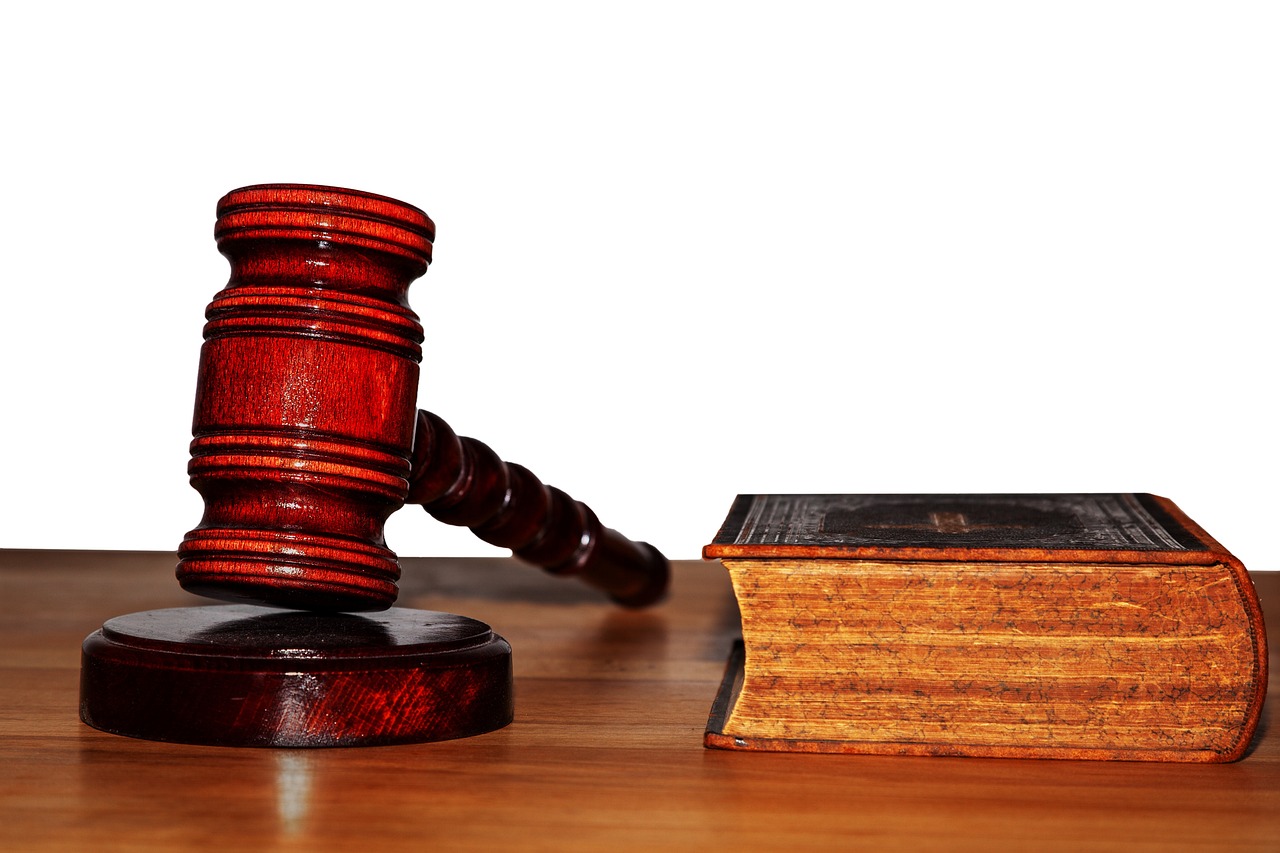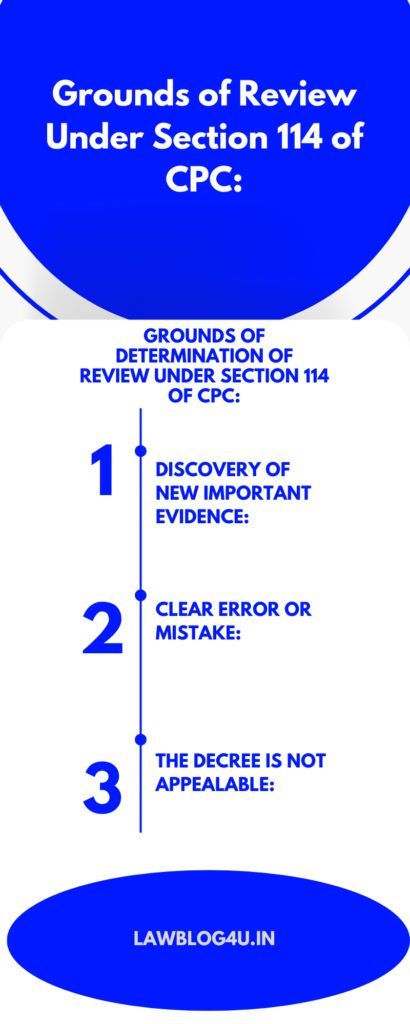Introduction
The review under CPC is a right of review provided as a remedy under the provision of the Civil Procedure Code, 1908. This right remedy can be granted under some special circumstances that must be met. The aim of this right to remedy is to correct the court order which is affected by an error or mistake. If we refer to the provision of Order 47 of the CPC, certain conditions are completed to operate this right to remedy of review. The right is provided under section 114, and Order 47 of the CPC has described the procedure. In this article, we discuss an in-depth review of matters under CPC. What are the conditions and requirements mentioned in Order 47 of the CPC for the right of this remedy? What is the difference between review and revision under the CP? So, please stay tuned and read below:
What is a review under CPC?
If we refer to the dictionary meaning of review it is “ to examine again”. The court has substantive review power under the provision of, Section 114 of the CPC. According to this section, the court can review the judgment or decree under the limitations and conditions. That is provided under Oder 47 of the CPC. According to this the power of review is vested only to the court and a government officer has no inherent power or right to review their orders, this power is conferred by the law only to the court.
What does section 114 of the CPC say?
Before we look into the review under CPC, first we need to understand what exactly section 114 of the CPC says. A review petition can be filed in the same court that pronounced the decree or order, which is appealable but not filed, or such kind of decree or order which is not covered under the preview of appeal under the provision of section 114 of the Civil Procedure Code, 1908.
- When a referral decision is pronounced, by a small cause court.
- When a pronounced decree or order is appealable and covered under the subject matter of appeal under the provision of the Civil Procedure Code, but the appeal is not filed.
- When a pronounced decree or order is not appealable and not covered under the subject matter of appeal under the provision of the Civil Procedure Code.
There are some other reasons on that based the review petition can be filed that are given below:
- The additional information was not found before the order, or either not available or impossible to collect at the time of the decision, and the order is declared due to that neglect.
- The error is readily shown on the record and because of that, there is no requirement to repeat the case entirely.
- Any other lawful grounds permitted under the CPC based on the court’s misinterpretation.
Grounds of determination of Review under Section 114 of CPC:
Some grounds require meeting the complete for a review under CPC that are given below:
Discovery of new important evidence:
The review petition can be filed when significant evidence or matter has not been discovered, and that information comes to light after the order is declared. In that case, the court may review the decision.
Clear error or mistake:
When a legal mistake or error is found by the court on the front of the record, in that situation, the court can rectify that error, and there is no further evidence needed for that.
The decree is not appealable:
The review petition can be laid by the defendant if did not file an appeal against the decree that is passed, or an appeal is allowed under the provision of CPC.
There are enlarged categories included in the Civil Procedure Code based on which the review under CPC can be laid. Such as, if the decree mentions the inaccurate or the court laps to consider a material issue or relevant evidence then it is also a grounds review under CPC.
The limitation period for filing a review under the CPC
The limitation period for filing a review application is thirty days from the date of the judgment or decree passed by the court. This timeline ensures the timely remedy of the review process under the legal framework.
What are the provisions in Order 47 of CPC for the review procedure?
The Civil Procedure Code, 1908 Order 47 described the procedure for the review application. That application may be rejected based on different grounds, which are mentioned in Rules 1 to 9 under Order 47.
When the review petition lies before the court, an application will hear ex parte at first. It will be dismissed if the court does not satisfy the ground which is mentioned in the application. But if the court determines the grounds of the application it will issue the notice to the opposite party.
The review petition will be tried by the same judge and court as the decree or order passed. The application will proceed with a merit and after hearing the parties the court can alter or affirm the original order which was passed previously.
Whether the review is inherent right?
We should note that the right of review order under CPC is not inherent, it is given by the law, in the terms of expressly or essentially implication. The court must correct the serious error that is made in the order by using the power of review to correct the injustices.
Case laws of review order CPC
Let’s refer to some case law for more clarify the above discussion.
In the case of Sow Chandra Kante vs. Sheikh Habib, the Supreme Court ruled out that, the primary goal of Section 114 of the Civil Procedure Code, 1908 is not give to a second chance to the losing party to win the case. It is not permitted for the court to issue a second judgment.
In the case of Northern India Caterers Ltd. vs. Governor of Delhi, the Supreme Court rightly observed that the review procedure cannot compare with the initial hearing of a case. The final court decision cannot be reviewed until or unless there is a clear omission of parent error come out due to previous judicial unreliability.
Difference between Review and Revision
We often show that the words Review and Revision are used in CPC look like the same meaning, but there is a significant difference between them. Let’s know some differences between review and revision under the Civil Procedure Code, of 1908.
Meaning:
The term review narrates the act of re-examination or reconsideration of a court order, which is pronounced by the same court and judge. The initial aspect of the review is to correct judicial errors made in the previous court decision.
The term Revision means to act as revise or modify the court order. The higher court has the power to modify or revise the decision issued by the subordinate court. The concept of the revision is broad compared to review, it lied to the higher court for the reconsideration or re-examination of the order if it is affected by the error of law.
Objective :
Both are rooted in the legal framework, the review process applies to rectify the parent error in the court decision in the same court, to correct injustice.
An appeal or revision would be filed by the party to a higher court to recall or reconsider the order which is pronounced previously by the lower court. Here in the revision, the higher court has the authority to determine the correctness of any jurisdiction error which is by the lower court. The revision provides an opportunity for the aggrieved party to rectify those orders which are non-appealable by law. One more thing we should know is that the high court has the revisional power to take a matter as suo moto without filing a specific application for the revision.
Related sections in CPC:
Section 114 of the Civil Procedure Code deals with the review, which defines the different criteria for the review under this Act.
Section 115 of the Civil Procedure Code deals with the revision, which defines the legislative source of the jurisdiction. According to that the higher court has jurisdictional power to trial the revision application.
Authority:
The review can be laid by the party involved in the case, at the same court and judge. The authority to hear the review application is limited within the court where they pronounced the judgment previously.
In contrast, the revision can be laid by the High Court via Sou moto, or by the aggrieved party. The high court has jurisdictional authority to revise the trial court judgment.
Time limit:
There is no specific time limit inscribed to file a review petition under section 114 of the Civil Procedure Code, 1908. However, the time limit is expected a reasonable time to file the petition after the declaration of the order.
The limitation period prescribed for filing a revision under section 115 of the Civil Procedure Code, 1908 is 90 days from the date of order.
Nature of rectifications of errors:
The review petition can be laid on the grounds of discovery of new or significant evidence, parent mistakes or errors in the front of the order, or other considerable reasons. The primary aim of the review is to correct these types of errors in the court judgment.
While the revision petition can be laid on the grounds of matter of law, jurisdictions, etc. When, there is an illegality or improperness of the law felt in the trial court, that can be revised by the higher court through the revision.
Court jurisdictions:
The review petition files in the same court and judge were the order or judgment declared. They have the power to re-examine the original order.
While, the revision application is filed in the higher court, or high court. The high court has extended jurisdiction by sou moto to trial the revision petition without the application and may revise the trial court observation if they think fits according to the law.
Conclusion
As we refer to the provision of Section 114 of the CPC, according to that the court has the power to rectify its judgment. That can initiate only on the event while some important evidence missing to considered in the judgment. There are many other grounds such as, the parent error seems in the front of the record, any significant information needs to be addressed that the party was unaware during the trial. However, the important thing is that the power of review is restricted within the time, and grounds determine the question of error or mistake and rectify it only for fair and natural justice.
Reference:
(2) Section 115 of the Civil Procedure Code


